LiangLiang Cao
Progressive Learning Algorithm for Efficient Person Re-Identification
Dec 16, 2019
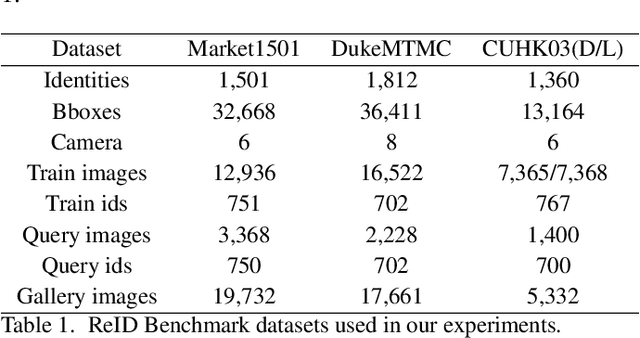
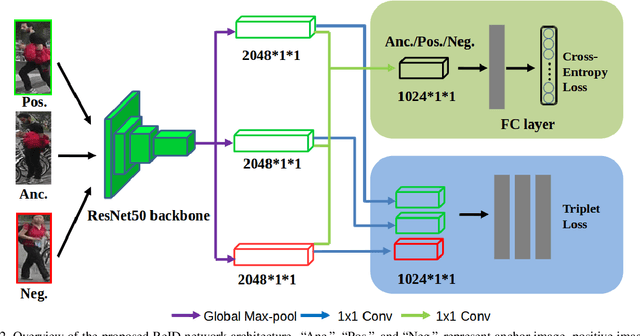
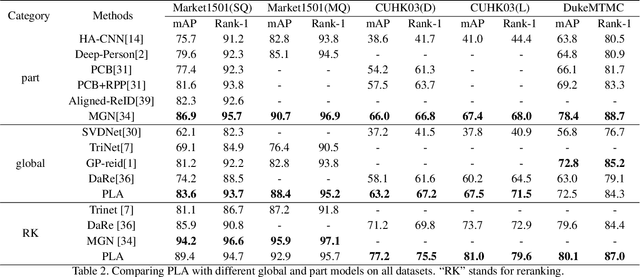
Abstract:This paper studies the problem of Person Re-Identification (ReID)for large-scale applications. Recent research efforts have been devoted to building complicated part models, which introduce considerably high computational cost and memory consumption, inhibiting its practicability in large-scale applications. This paper aims to develop a novel learning strategy to find efficient feature embeddings while maintaining the balance of accuracy and model complexity. More specifically, we find by enhancing the classical triplet loss together with cross-entropy loss, our method can explore the hard examples and build a discriminant feature embedding yet compact enough for large-scale applications. Our method is carried out progressively using Bayesian optimization, and we call it the Progressive Learning Algorithm (PLA). Extensive experiments on three large-scale datasets show that our PLA is comparable or better than the-state-of-the-arts. Especially, on the challenging Market-1501 dataset, we achieve Rank-1=94.7\%/mAP=89.4\% while saving at least 30\% parameters than strong part models.
Mining Fashion Outfit Composition Using An End-to-End Deep Learning Approach on Set Data
Apr 15, 2017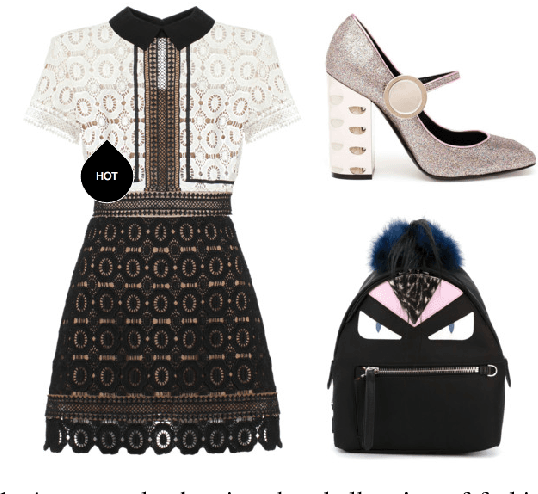

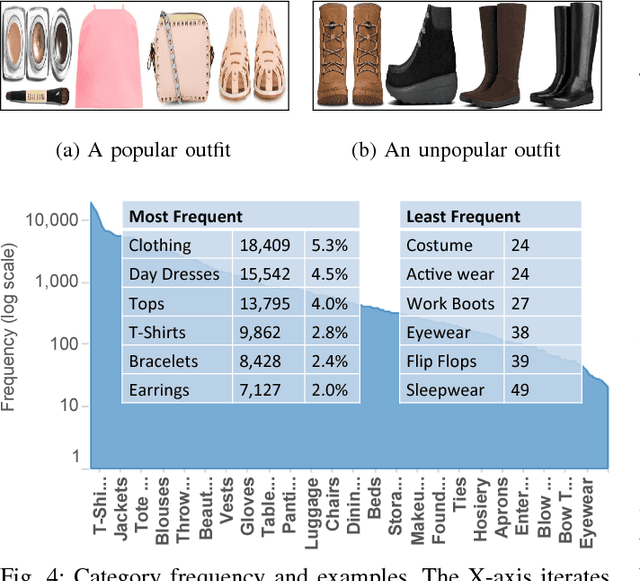
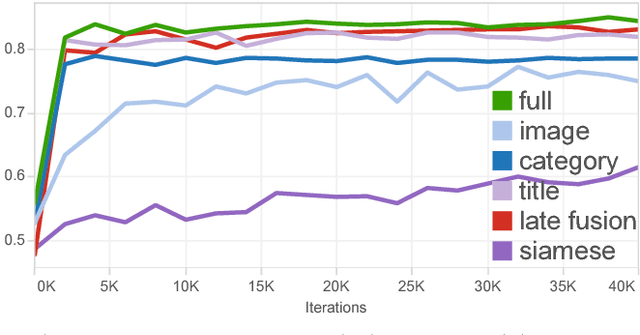
Abstract:Composing fashion outfits involves deep understanding of fashion standards while incorporating creativity for choosing multiple fashion items (e.g., Jewelry, Bag, Pants, Dress). In fashion websites, popular or high-quality fashion outfits are usually designed by fashion experts and followed by large audiences. In this paper, we propose a machine learning system to compose fashion outfits automatically. The core of the proposed automatic composition system is to score fashion outfit candidates based on the appearances and meta-data. We propose to leverage outfit popularity on fashion oriented websites to supervise the scoring component. The scoring component is a multi-modal multi-instance deep learning system that evaluates instance aesthetics and set compatibility simultaneously. In order to train and evaluate the proposed composition system, we have collected a large scale fashion outfit dataset with 195K outfits and 368K fashion items from Polyvore. Although the fashion outfit scoring and composition is rather challenging, we have achieved an AUC of 85% for the scoring component, and an accuracy of 77% for a constrained composition task.
 Add to Chrome
Add to Chrome Add to Firefox
Add to Firefox Add to Edge
Add to Edge